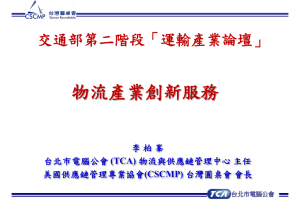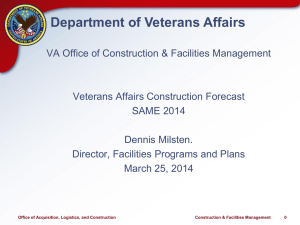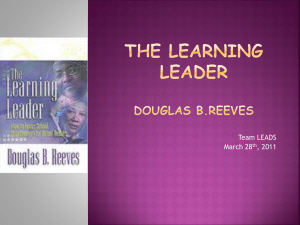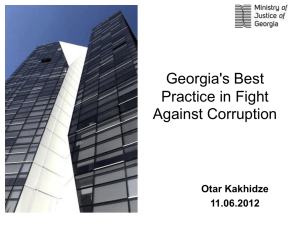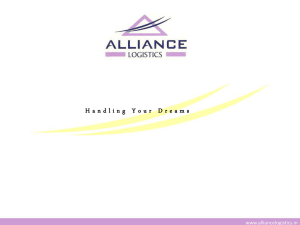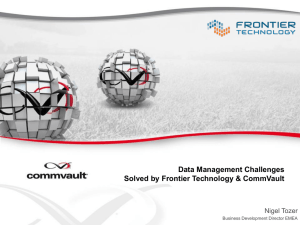SCM Presentation on Corruption and Supply Chain Management
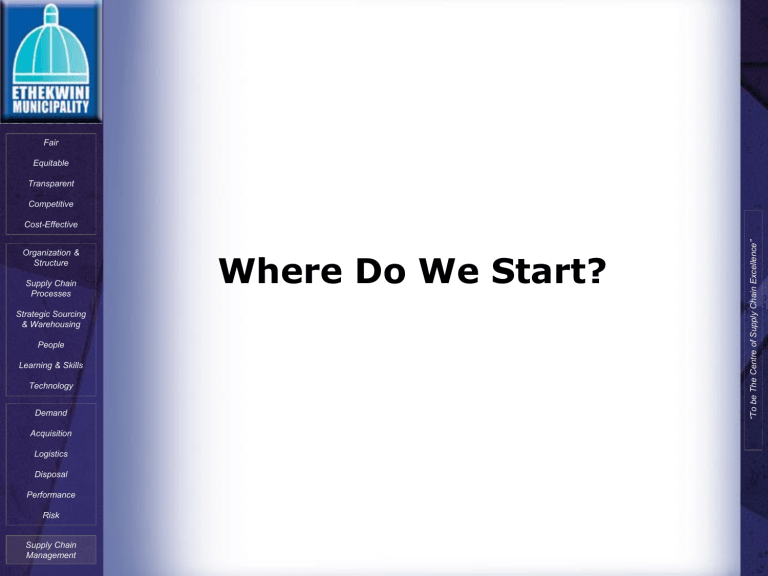
Fair
Equitable
Transparent
Competitive
Cost-Effective
Organization &
Structure
Supply Chain
Processes
Strategic Sourcing
& Warehousing
People
Learning & Skills
Technology
Demand
Acquisition
Logistics
Disposal
Performance
Risk
Supply Chain
Management
Where Do We Start?
Fair
Equitable
Transparent
Competitive
Cost-Effective
Organization &
Structure
Supply Chain
Processes
Strategic Sourcing
& Warehousing
People
Learning & Skills
Technology
Demand
Acquisition
Logistics
Disposal
Performance
Risk
What is Corruption?
Corruption means any abuse of a position of trust in order to gain an undue advantage. This involves the conduct of both sides: that of the person who abuses his position of trust as well as that of the person who seeks to gain an undue advantage by this abuse
(SECO)
Supply Chain
Management
Fair
Equitable
Transparent
Competitive
Cost-Effective
Organization &
Structure
Supply Chain
Processes
Strategic Sourcing
& Warehousing
People
Learning & Skills
Technology
Demand
Acquisition
Logistics
Disposal
Performance
Risk
How & Where Does It
Happen?
Corruption can occur in relation to officials as well as between private persons.
It is particularly prevalent in certain kinds of transactions
(for example, when awarding public contracts).
Supply Chain
Management
Fair
Equitable
Transparent
Competitive
Cost-Effective
Organization &
Structure
Supply Chain
Processes
Strategic Sourcing
& Warehousing
People
Learning & Skills
Technology
Demand
Acquisition
Logistics
Disposal
Performance
Risk
Supply Chain
Management
Are There Any Standards Set to Control/Combat
Corruption?
Fair
Equitable
Transparent
Competitive
Cost-Effective
Organization &
Structure
Supply Chain
Processes
Strategic Sourcing
& Warehousing
People
Learning & Skills
Technology
Demand
Acquisition
Logistics
Disposal
Performance
Risk
Supply Chain
Management
Constitution: 217
“When an organ of state in national, provincial or local sphere of government or any other institution identified in national legislation, contracts for goods and services, it must do so in accordance with a system which is fair, equitable, transparent, competitive and
cost-effective”.
Fair
Equitable
Transparent
Competitive
Cost-Effective
Organization &
Structure
Supply Chain
Processes
Strategic Sourcing
& Warehousing
People
Learning & Skills
Technology
Demand
Acquisition
Logistics
Disposal
Performance
Risk
Supply Chain
Management
Legislative Requirements
In Terms of the Legislative Requirements, Chapter
11 of the MFMA, Section 115 (1) (a) & (b), states “The
Accounting Officer of a municipality or municipal entity must
implement the supply chain management policy of the municipality or municipal entity; and
take all reasonable steps to ensure that proper mechanisms and separation of duties in the
supply chain management system are in place to minimize the likelihood of fraud, corruption, favouritism, unfair and irregular practices.”
This must be read with SCM Regulation 7 (1), which states “Each municipality and each municipal entity must establish a Supply Chain Management Unit to implement it’s supply chain management
policy.”
Fair
Equitable
Transparent
Competitive
Cost-Effective
Organization &
Structure
Supply Chain
Processes
Strategic Sourcing
& Warehousing
People
Learning & Skills
Technology
Demand
Acquisition
Logistics
Disposal
Performance
Risk
Supply Chain
Management
Governance Requirements
In Terms of the Governance Requirements, Good
Practice in Governance, suggests that it is imperative for an organization to have a Strong & Effective
Internal Control. The basic principles of internal control require at least the following as a minimum:-
Appropriate Division of Duties/Responsibilities for
Related Transactions/Functions;
Qualified & Empowered Personnel with Appropriate
Delegated Authority;
Sound, Written Policies & Procedures and
Actual Performance, Consistent with the Above First
Three Principles.
Components of Internal Control cover The Control
Environment which consists of both Hard Controls
(authorities/delegations, policies & procedures and organizational structure & reporting line) and Soft
Controls (ethics, management style, principles & values); Risk Assessment, Control & Monitoring as well as Control Activities, all which must promote & support the above mentioned internal control principles.
Fair
Equitable
Transparent
Competitive
Cost-Effective
Organization &
Structure
Supply Chain
Processes
Strategic Sourcing
& Warehousing
People
Learning & Skills
Technology
Demand
Acquisition
Logistics
Disposal
Performance
Risk
Supply Chain
Management
What Are the Types of
Corruption in SCM?
Main Types of SCM Corruption
Fair
Equitable
Transparent
Competitive
Cost-Effective
Organization &
Structure
Supply Chain
Processes
Strategic Sourcing
& Warehousing
People
Learning & Skills
Technology
Demand
Acquisition
Logistics
Disposal
Performance
Risk
• Value Splitting
•
Cover Quoting
•
Collusion & Price Fixing
•
Price Rigging
•
Misrepresentation
•
Conflict of Interest
•
Limited Competition
•
Undue Influence & Interference
•
Contract Manipulation
•
Price Adjustments
Supply Chain
Management
Fair
Equitable
Transparent
Competitive
Cost-Effective
Organization &
Structure
Supply Chain
Processes
Strategic Sourcing
& Warehousing
People
Learning & Skills
Technology
Demand
Acquisition
Logistics
Disposal
Performance
Risk
Supply Chain
Management
Conclusion and Proposed
Solution
To Eliminate/Minimize Risks Exposure Related to
Conflict of Interest, Fraud, Corruption, Favouritism,
Unfair and Irregular Practices as spelled out in Section
115 of the MFMA and also to Optimize Service Delivery the following need to happen:-
Enforcement of the Standards
SCM Function should not play second fiddle to any other function as it is currently happening
The Supply Chain & Procurement Function needs to be elevated and given the recognition it deserves as one of the most critical and strategic functions in the organization, for it to achieve it’s fullest potential, as it impacts significantly on both the Service
Delivery and Socio-Economic Transformation;
The Supply Chain & Procurement Function and Practitioners need to be fully empowered and mandated with appropriate authority & seniority to Provide Professional advice, make
Professional Judgements and Decisions and Perform their duties Independently and Objectively, without any fear and/or influence;
There need to be a special dispensation when it comes to salaries for Procurement Practitioners to miminmse proneness to bribes;
The Supply Chain & Procurement Function need to report
Administratively Directly to the Accounting Officer and
Functionally, to Any Appropriate Independent Body;
Fair
Equitable
Transparent
Competitive
Cost-Effective
Organization &
Structure
Supply Chain
Processes
Strategic Sourcing
& Warehousing
People
Learning & Skills
Technology
Demand
Acquisition
Logistics
Disposal
Performance
Risk
Supply Chain
Management
The End is not The End


